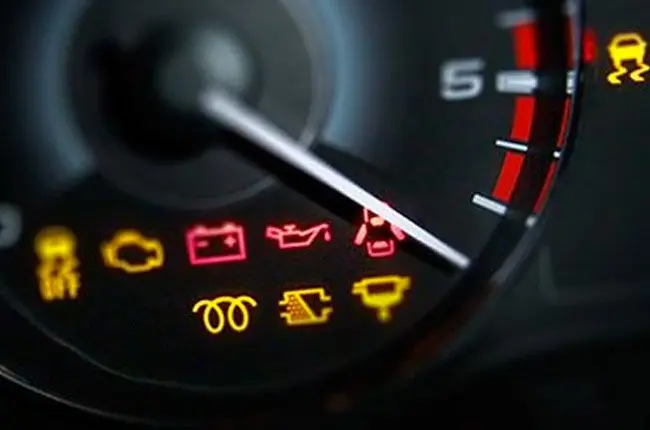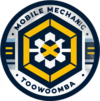Diagnostic Services: Understanding Your Vehicle’s Health
In today’s vehicles, advanced computer systems control almost every aspect of how your car runs. These systems help optimize performance, improve fuel efficiency, and enhance safety. However, when something goes wrong, it can be challenging to pinpoint the issue without professional diagnostic services. In this article, we’ll explore what diagnostic services entail, why they’re essential, and how they can help you keep your vehicle in top condition.
What Are Diagnostic Services?
Diagnostic services involve using specialized tools and equipment to read error codes and monitor various systems within your vehicle. Modern cars are equipped with onboard diagnostic (OBD) systems that can detect and report issues ranging from engine misfires to faulty sensors.
Key components typically checked during diagnostic services include:
Engine Control Unit (ECU): The brain of your car, controlling engine functions.
Transmission: Responsible for shifting gears and transmitting power.
ABS Brakes: Monitors and controls the anti-lock braking system.
Airbags: Ensures that the airbags are ready to deploy in an emergency.
Emission Systems: Helps control the vehicle’s environmental impact.
By connecting to your car’s OBD system, a mechanic can quickly identify problems, even before they become serious, and determine the best course of action for repairs.

Common Issues Diagnosed
Here are some of the most common issues that diagnostic services can help identify:
Check Engine Light:
–Symptom: The dreaded check engine light illuminates on your dashboard.
–Cause: This could be due to a wide range of issues, from a loose gas cap to a more severe engine problem. Diagnostic tools can help pinpoint the exact cause.
Transmission Problems:
–Symptom: Difficulty shifting gears, slipping transmission, or unusual noises.
–Cause: Issues could range from low transmission fluid to more complex mechanical failures. Diagnostics can reveal whether a simple fluid change or a more extensive repair is needed.
Brake System Issues:
–Symptom: ABS light on, squealing brakes, or a soft brake pedal.
–Cause: Problems might be related to worn brake pads, low brake fluid, or a malfunctioning ABS sensor. Proper diagnostics can ensure your braking system is functioning safely.
Poor Fuel Efficiency:
–Symptom: Decreased kilometers per liter or frequent refueling.
–Cause: Issues with the fuel system, oxygen sensors, or even tire pressure can affect fuel efficiency. Diagnostics can help identify the culprit.
Air Conditioning Malfunctions:
–Symptom: Air conditioning blowing warm air or inconsistent cooling.
–Cause: This could be due to a refrigerant leak, a failing compressor, or issues with the climate control system. Diagnostics can pinpoint where the problem lies.
The Importance of Regular Diagnostics
Regular diagnostic services are essential for maintaining your vehicle’s health and catching potential issues early. Here’s why:
Preventative Maintenance: Diagnostics can reveal minor issues before they escalate into major, costly repairs.
Safety: Ensuring all systems are functioning properly, especially critical systems like brakes and airbags, is vital for your safety.
Cost Efficiency: Early detection often means simpler, less expensive repairs, saving you money in the long run.
Environmental Responsibility: Diagnosing and repairing emissions-related problems can help reduce your vehicle’s environmental impact.
Given Toowoomba’s varied climate, from hot summers to chilly winters, regular diagnostics can ensure your vehicle is always ready to handle the local conditions.
FAQs About Diagnostic Services
Q: How often should I have diagnostic services performed? A: It’s a good idea to have diagnostics done if your check engine light comes on, or at least once a year during your annual maintenance check. If you’re experiencing unusual symptoms, a diagnostic service can help identify the issue quickly.
Q: What happens during a diagnostic service? A: During a diagnostic service, a mechanic will connect a diagnostic tool to your vehicle’s OBD system. This tool reads error codes and provides data on various vehicle systems. The mechanic will then interpret these codes to identify any issues.
Q: Can diagnostic services detect all types of problems? A: While diagnostics are highly effective at identifying issues with electronic systems, not all problems will trigger a code. However, skilled mechanics can use diagnostics in conjunction with their experience to identify and address most issues.
We Offer Expert Diagnostic Services
If your vehicle’s check engine light is on or you’re experiencing performance issues, our expert diagnostic services can help. We use the latest tools to accurately diagnose and fix problems, ensuring your car is safe and reliable.
Contact us today to schedule a diagnostic service or to learn more about how we can help keep your vehicle running smoothly.
Need a Roadside Assistance?
When you’re stuck on the side of the road, don’t panic. Mobile Mechanic Toowoomba is just a call away. Our fast and reliable roadside assistance service will get you back on your way quickly. From flat tires to engine troubles, we’ve got the skills and tools to handle any roadside emergency. Don’t let car trouble ruin your day—reach out to us, and we’ll take care of the rest.
